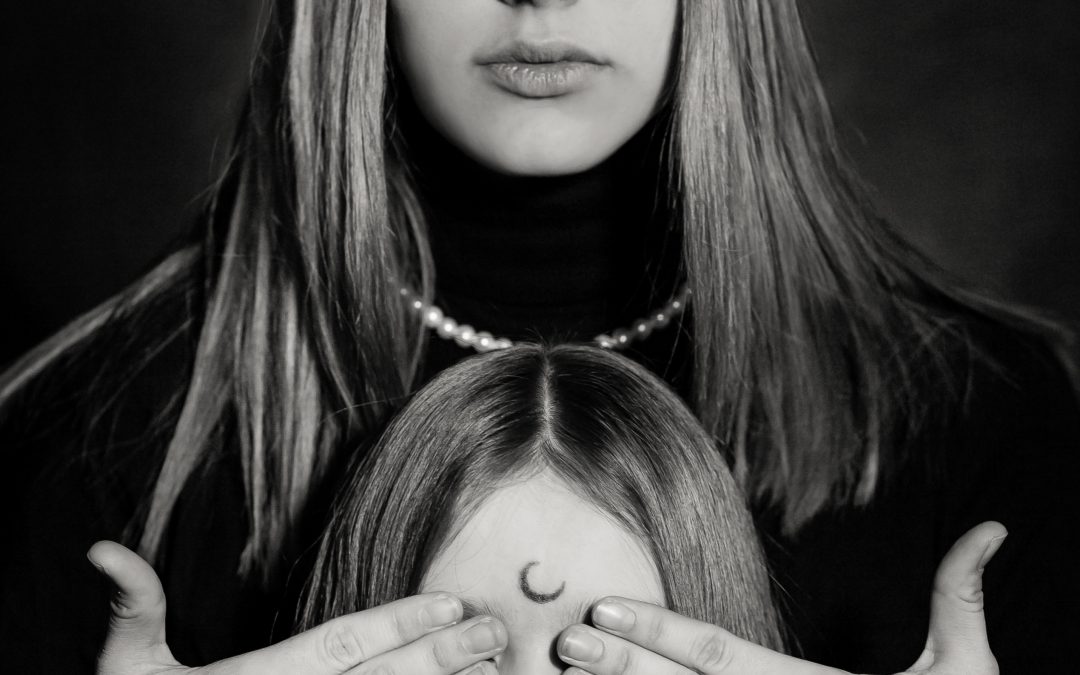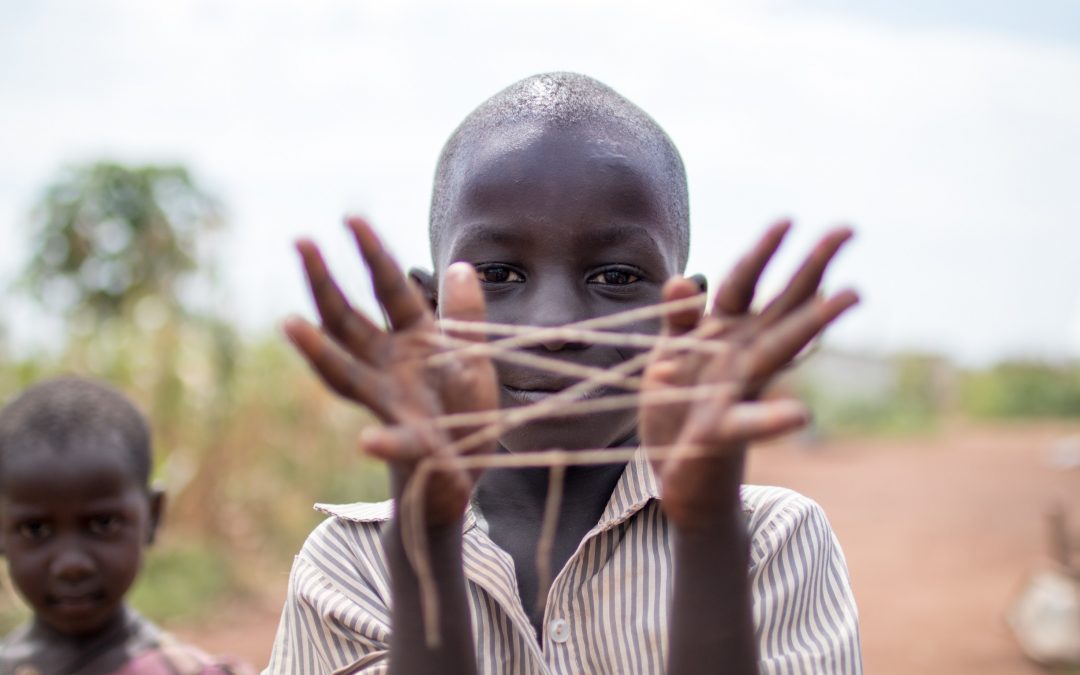
by Sandy Rao | Jan 21, 2019 | Adolescence, BLOG, Parenting, Parenting Teens, Teens
As parents and adults who care for pre/teen children, our view of children is that children are incomplete. In that, they are children now, and they will grow into a whole person one day. I propose that our children are whole and complete at all times, and it our inability to see them as such that causes the tension and conflict at home, school, and the world.
Play along with me. I want you to take a moment from your teenage years and think about a time when you knew what to do, and expressed it and felt denied, undercut or rejected by your parents. It could have been an idea for a trip, or preparing for a party at home or how to get the TV working again. Do you have it? Good!
Now take another moment to search, and truly get in touch with how you felt? What aspect of the parent-child relationship did this experience solidify for you? What was reiterated to you at that moment? What beliefs about being a teen or a young person did you take on? And today, at whatever age you are, how do you justify this belief as a parent? And what is the impact of this belief on your relationship with your child?
Let me share my own answers to these questions. The situation I used for this exercise was the following. My dad ran a consulting business in the granite industry. He had met with a large company and the potential for the contract to come through seemed promising. He had to call his contact at the company to confirm that he would take the deal. This event happened during a time when we had only landlines (remember those days?), and the phone lines were down in our area due to a storm the night before. My dad kept checking if the phone line was back, and it hadn’t come back on even in the afternoon.
My dad was complaining to my mom about the phone service when I stepped in and suggested that he can go to a public phone to make that call or even go over and meet the contact to confirm. My suggestion received severe reprimand because I had no business butting into big people business. What would I know, I am only a child.
At that moment I felt incompetent, and not good enough. What it solidified for me about my beliefs about relationships with my parents was that I don’t have a voice in this relationship, all I am allowed to do is listen and do as they say. What was reiterated at that moment was, I don’t know anything, and my parents are always right. The believes I took on about being a teen/young person is they don’t know much, and they masked around looking like they know it all. I have justified their reaction by thinking, yes they said what they said, but I turned out fine anyway.
However, the impact of this on my relationship with my parents was at best withholding, and at worst confrontational. The effects on my relationship with my daughter were, I tended to cut her off, and her age clouded my ability to accept what she is suggesting or sharing.
The ripple effect of these beliefs and patterns of relating with my parents the way I did would have been my daughter, and I have a similar relationship as my mom and I. Once I saw it, I had to transform it. I had to get clear in my mind and heart that my daughter is whole and complete, and she may know things I do not, or I can’t even imagine.
I also had to get clear, that I have been my daughter’s age and there was a particular experience of that age for me. And having experienced being a specific age is not sufficient knowledge to conclude that my daughter’s experience is the same as mine and what worked for me or the opposite of that will be the best for my daughter.
I had to get present to the fact that I grew up with a black and white TV and a landline. I got introduced to the internet in my late teens and early twenties when the internet itself was a baby. I haven’t a clue how it is to be a pre/teen with all the world’s information at my fingertips, and being able to see and talk to family and friends on the other side of the planet without worrying about what that costs. I had to get present to the fact that my baby may know more about many things than I do. And I had to ground all that in the statement – She is whole and complete at the age she is. She is always whole and complete.
Once I had done all that, my listening of her changed. I was more present to the possibility that she may know more, and there are times when she doesn’t know it all, and we have to work through things. But who doesn’t?
I hope you take this on and become a clearing for the listening of your pre/teens as a whole and complete people with knowledge and answers you may not have. I promise you; this will transform your relationship with them, and provide a space and a solid foundation for a fantastic relationship.

by Sandy Rao | Apr 18, 2018 | Adolescence, BLOG, Parenting, Parenting Teens, Teens
Imagination powers creativity. Creativity powers reality, and the created reality fuels experience. Experience rebirths imagination and on and on we go.
If you agree with the statements above, you will notice the cyclical nature of how we humans create our realities. You may also consider the way imagination is rebirthed based on the experience or the interpretation of the experience as good or bad. I want to propose that we the adults in our communities, societies and the world have a responsibility to the younger generations and the generations yet to come, to help create a world of reality that is grounded in compassion, kindness, sharing, and responsibility.
If the little voice in your head went, “yes that would be nice, but that is a pipe dream.” This task may seem Herculean, and you may have given up even before you start. I encourage you to consider that our responsibility as adults is to create spaces (home, schools, sports teams, etc.) for our children to be creative in building their world. At the risk of sounding jaded, I believe that the possibility of a brave, responsible and compassionate world will be created by the young among us.
Pre-teens and early teens are the most creative and fairness minded times in the human being’s lifetime. You may have noticed this with your children as I see with my 10-year-old; her most significant concerns is about how things have to be fair. Her complaints always start with, “That is not fair.” She has come to me with challenges she is facing with her friends at school or her cousins. She has a sense of fairness, this idea of equality in play, in sharing, etc.
When she has come to me with her challenges, here is what I have done in the past:
• I have asked her to assert herself
• I have asked her to find new friends
• I have asked her to complain to an adult that is around
• I have asked even to stop talking to or playing with some of her friends
You see how all of these are rooted in the idea of, “Look after yourself. Others don’t matter.” In doing so, I imposed my way of being and in some way crushed her fairness and didn’t make a space for her to come up with a creative and fair way of dealing with the situation.
Realizing this, I tried a different approach with her and her friends when they disagreed about something a few weeks ago. Here is what I tried:
• I asked each of them if they liked each other? The answer was yes.
• I asked if they wanted to make and see each other happy? The answer was yes.
• I asked if what they were fighting about was important enough to put a rift between them? The answer was no.
• Then I asked them, to suggest how they could have dealt with the situation that would keep each of them satisfied by giving up something. The girls’ answers amazed me –
o One of them said we could have played a different game that would involve all equally.
o Another said we could have been better about taking turns
o My little girl said I could have found something to do till they finished playing. I don’t mind being on my own. I could have let them know I was waiting to play with them and they would have completed what they were doing, and we could have started a new game.
The core of the solution to this incident was each of their already available knowledge of respect, compassion, fairness, and responsibility to each other. We adults, with our insecurities of the world, sometimes blemish this knowledge.
All three of them went on to play as happy as clams.
Here are the lessons I got out of this incident:
1. I as an adult push my insecurities about people and the world on to my daughter.
2. My daughter and the other kids are perfect and complete as they are.
3. As an adult in their lives, my responsibility is to nurture their inner power and resources and not to impose my idea of how things are supposed to be. (That has not always worked out great for me. Why should I believe that is the best way to be?)
4. I am limited in understanding and suggesting ways to deal with situations in any other way than my limited view of the world.
5. I have the power to create a space for them to come up with ways to deal with it and trust that their imagination and creativity will carry them through.
I feel that dealing with one incident creatively, sets a template for these kids to deal with other events creatively as well. I as an adult have to stand for and commit to making space for them to be able to build on. It is in my power to let their imagination power their creativity, which in turn powers their reality towards positive experiences.

by Sandy Rao | Apr 9, 2018 | Adolescence, BLOG, Parenting, Parenting Teens, Teens
If you have a 10-year-old, you know that she is the one teaching you how to optimize your Instagram, she knows all the shortcuts in Youtube and she is a smartphone and social media guru in the house. She is willing and eager to show you how it is done, unlike our mid to late teens, who know more but aren’t inclined to teach you. I see it clearly in my pre-teen, her need for our approval and pride in herself. We may not always be able to see the awesomeness in all that she is in awe of and we try to understand.
It is a fine line between attempting to understand and to approve of all the things my 10-year-old daughter is doing online and on devices. There have been clear lines set regarding the use of tools and what she is allowed to use online. There are obvious consequences as well. Even with all the rules, we had been butting heads about her obsession with YouTube. She would find sneaky ways to get a device and get online to YouTube.
The head-butting was getting to me, I was feeling like a bad parent, and my lovely daughter seemed unreachable. For the first time, I felt like my baby was drifting from me and it looked like there was nothing I could do. I am sure a lot of you know this feeling, it is not a punch in the gut, it is cancer that clouds nearly all our interactions with our children from the first moment we experience this feeling.
I had to remind myself of few things to ensure that precious relationship with my lovely would remain intact and gets stronger.
- She is a whole person, and she has her will and her choice. As a Mother, I need to unconditionally accept.
- Unconditional acceptance is not equal to Unconditional approval.
- How I experience a feeling and how I let that feeling influence my actions is in my control.
- In this particular example, I had to introspect about what it was about YouTube that really bothered me? Passive consumption was the answer I got.
I needed to get clear on how I can let her do her thing, yet be more critical and active in her viewing of these videos. The goal was to come up with a solution that would be agreeable to both of us without reservations.
Once I got all that clear in my head, I came up with an idea to pivot the passive watching into active critical watching and discussed it with my daughter. Here are the things we agreed to:
She could watch all the videos she wants, as long as she would make a note of the following characteristics of the videos:
- The main content and topic of the video
- What did she like about the video and why?
- What did she not like about the video and why?
- Ideas on how it could be done better.
- At the end of the week, she would have to write a blog about it.
She would get to watch the videos only if she blogged about the videos she had watched. If she missed blogging, she committed to not watching.
You can find her blog here. Among her musings about the imaginary world she has created, you will notice that she has blogged about two youtube videos. Something seemed to click in her about the importance of active watching, and her YouTube time has dried up considerably. This morning, she picked up her device and started reading a book instead!
I will take this small win, especially since it comes with the side of a strong relationship with my daughter.

by Sandy Rao | Mar 22, 2018 | Adolescence, BLOG, Parenting, Parenting Teens, Teens
Helping a teenager turned into a caring, independent and capable adult isn’t a small task. Know the parenting techniques you need to help guide your teen. Adolescence can be a tricky period of change for parents and adolescents alike. While these years can be hard, there’s a lot you might do to nurture your adolescent and promote responsible behavior. Utilize these parenting abilities to deal with the difficulties of raising a teen.
- Showing your love and favorable attention is essential for your teen.
- Spend some time with your teenager to show her or him that you care.
- Listen to your teenager when she or he talks and respect your teen’s feelings.
- Do not assume that your teenager knows how much you love her or him.
In case your teenager doesn’t seem intrigued to bond, keep trying. Eating meals together could be an excellent way to connect. Better yet, invite your teenager to prepare the meal with you. On days when you are having trouble talking to your teenager, consider each doing your very own thing in the same space. Being near each other can begin a conversation. Remember that unconditional love does not mean unconditional approval. You can subject your adolescent while showing you won’t withdraw your love according to their behavior.
Try this on for size: Instead of focusing on achievements, like getting straight A’s, expect your teenager to be kind, considerate, respectful, sincere and generous. Regard day to day achievements, remember that teenagers gain confidence through success, which will prepare them for another challenge. As your adolescent takes on more strenuous tasks, rather than setting yourself as the gatekeeper, support them to ascertain what she or he can deal with. Promote your teenager to behave well, discuss what behavior is unacceptable and acceptable at home, at school and everywhere. Create fair and appropriate implications for how your teenager acts. When setting implications, avoid ultimatums. Your adolescent might interpret an ultimatum as a loss of power or control, and a reason to rebel.
Be clear and concise. Rather than telling your teenager not to stay out late, set a particular curfew. Keep your rules short and also to the point. Make implications immediate and linked to your teen’s selections or actions. Explain your decisions. Your teenager could be more prone to adhere to a rule when she or he understands its purpose. There might be less to rebel against if your teenager knows the limitation is being imposed for their safety. Be reasonable. Avoid setting rules your teenager cannot follow. A messy teenager could have trouble instantly maintaining a clean bedroom. Be flexible. As your teenager shows more reliability, grant her or him more freedom. Avoid lecturing your teenager about her or his shortcomings and the abstract, far off implications, which can motivate your teenager to prove you wrong.
All in all, show your teenager the same compassion, understanding, and generosity you would like to see from him or her.




